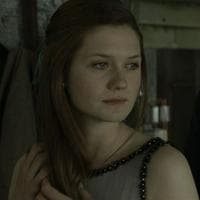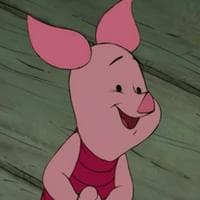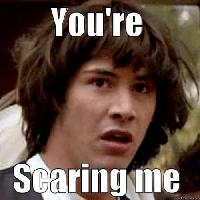Bilbo Baggins typ osobowości MBTI
Osobowość
"Jaki typ osobowości jest {profilename}? {profilename} jest typem osobowości {mbti} w mbti, {enneagram} - {iv} - {tritype} w enneagram, {big5} w Big 5, {sociionics} in Socionics."
People afraid of big comments, beware: There are multiple dimensions within his character that may hint his preference for Si as a dominant function. I will be monologuing about my ISFJ typing for Bilbo here by using a few themes that I will list now: 𝐚𝐭𝐭𝐚𝐜𝐡𝐦𝐞𝐧𝐭 𝐭𝐨 𝐬𝐞𝐧𝐬𝐨𝐫𝐢𝐚𝐥 𝐩𝐫𝐨𝐩𝐞𝐫𝐭𝐢𝐞𝐬, 𝐫𝐞𝐚𝐥𝐢𝐬𝐭𝐢𝐜 𝐩𝐞𝐫𝐜𝐞𝐩𝐭𝐢𝐨𝐧 𝐨𝐟 𝐟𝐚𝐜𝐭𝐬 & 𝐡𝐞𝐬𝐢𝐭𝐚𝐭𝐢𝐨𝐧 𝐭𝐨 𝐥𝐞𝐚𝐯𝐞 𝐡𝐢𝐬 𝐜𝐨𝐦𝐟𝐨𝐫𝐭 𝐳𝐨𝐧𝐞. But first, a little recap on Introverted Sensing. I want to deconstruct it all the way from Jung's IS that inspired MBTI's version of Si, until reaching the point of divergence and unfolding into what we have nowadays. ◍ 𝟎. 𝐈𝐧𝐭𝐫𝐨𝐯𝐞𝐫𝐭𝐞𝐝 𝐒𝐞𝐧𝐬𝐢𝐧𝐠: To understand Si, first one must understand Introversion & Sensing from a Jungian perspective. → 𝐈𝐧𝐭𝐫𝐨𝐯𝐞𝐫𝐬𝐢𝐨𝐧: An introverted individual is insecure when presented with an unprecendented object. They turn to their inner world and look to interpret the object with their own personal understanding. The importance of the object is second to their personal vision of the object, or in other words, their ego. → 𝐒𝐞𝐧𝐬𝐢𝐧𝐠: A philosophical point of view directed towards the capture of properties that are related to the senses present in objects. Strongly focusing on the present informations that are perceived and restraining perspectives and possibilities that deviate from this external reality. → 𝐓𝐡𝐞 𝐈𝐧𝐭𝐫𝐨𝐯𝐞𝐫𝐭𝐞𝐝 𝐒𝐞𝐧𝐬𝐢𝐧𝐠: The function that we know as Introverted Sensing is not detached from the two descriptions above. The nature of Introversion and Sensing compose a function based on perceiving knowledge about the object, while abstracting itself from the object and filtering it subjectively with the individual's ego. Having a preference for highlighting sensorial properties and an overall down-to-earth approach to understanding the object, basing on the real aspects of it, that can be felt and observed. ◍ 𝟏. 𝐀𝐭𝐭𝐚𝐜𝐡𝐦𝐞𝐧𝐭 𝐭𝐨 𝐬𝐞𝐧𝐬𝐨𝐫𝐢𝐚𝐥 𝐩𝐫𝐨𝐩𝐞𝐫𝐭𝐢𝐞𝐬: Much like in my Enneagram argument, I will once again highlight Bilbo's attachment to his belongings (home, food, etc...) that grant him a great deal of comfort, which he constantly gravitates towards. His life before the adventure has developed a noticeable reliance on these external items, with soothing sensorial properties that become Bilbo's guide to cope with any problem he might have. Bilbo's constant need to go back to his precious methods of attaining comfort and satisfaction lines up perfectly as a manifestation of his preference as a Si-dom, whose ego has placed a great value on his routine and belongings. ◍ 𝟐. 𝐑𝐞𝐚𝐥𝐢𝐬𝐭𝐢𝐜 𝐩𝐞𝐫𝐜𝐞𝐩𝐭𝐢𝐨𝐧 𝐨𝐟 𝐟𝐚𝐜𝐭𝐬: A very underrated aspect of Bilbo's character, and that also lines up well with a preference for Sensing is his strong, grounded way of perceiving the situation. We see this more often when Gandalf has left the party for a while, Bilbo had instantly become one of the leaders of the group due to his perception of whichever situation they found themselves in, as well as a clever decision maker that helped them when they were in tight spots. But let's not think about the decision making aspect, just the perception. Bilbo's personal way of perceiving has him quickly evaluating the current resources the group has, as well as the current threats they are facing. Always incredibly focused on the current reality and not ever letting himself get distracted by problems or possibilities that are not yet externally manifested. That would give him a quick picture of the situation which allowed him to make quick decisions. His preference for assessing only that which is of immediate importance strongly indicates a preference for Sensing over Intuition. ◍ 𝟑. 𝐇𝐞𝐬𝐢𝐭𝐚𝐭𝐢𝐨𝐧 𝐭𝐨 𝐥𝐞𝐚𝐯𝐞 𝐡𝐢𝐬 𝐜𝐨𝐦𝐟𝐨𝐫𝐭 𝐳𝐨𝐧𝐞: Although the "Took blood" often took over Bilbo's will and lead him to choose to go forward on the adventures against his usual personality and preferences, we've plenty of examples of Bilbo strongly clinging to his comfort zone. Be it before beginning the adventure where the very idea of participating in a dangerous quest would overwhelm him, or at every point where he faced difficulties and wished to go back to his easygoing life (as in ◍1). Bilbo's not one to openly accept the unknown, to change routines or crave for challengers, he's very often overwhelmed by the situations he's in (in this context, the "object" in the Jungian concept). Cowering, taking his time to accept and digest the information, much like in the description of Introversion, his priorities often lie on trying to cope internally with the external situations that overwhelm him (preference for Introversion), making him want to go back to the sensorial routines and belongings he had which his ego considers of utmost importance (preference for both Introversion and Sensing). As seen before at the start of my post.
Biografia
Bilbo Baggins was a Hobbit who lived in The Shire during the final years of the Third Age. His adventure with the dwarves Thorin and company earned him a fortune, and brought the One Ring of Sauron back into knowledge.
Osobowość correlate

Gandalf the Grey

Aragorn "Strider"

Frodo Baggins

Sauron
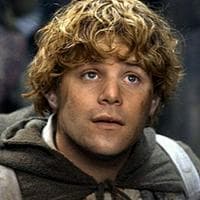
Samwise "Sam" Gamgee

Boromir

Legolas Greenleaf
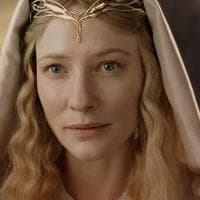
Galadriel

